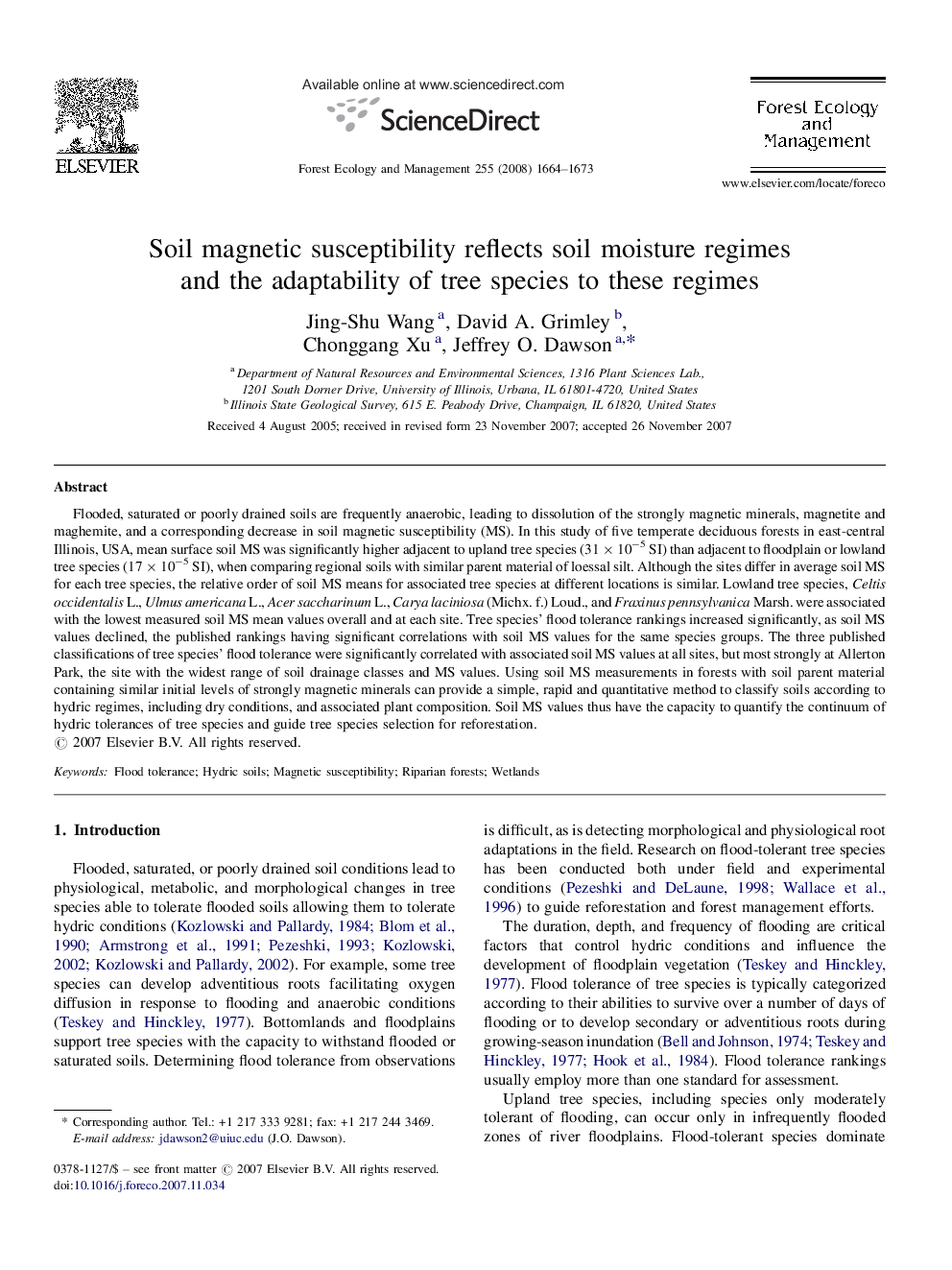| Article ID | Journal | Published Year | Pages | File Type |
|---|---|---|---|---|
| 89497 | Forest Ecology and Management | 2008 | 10 Pages |
Flooded, saturated or poorly drained soils are frequently anaerobic, leading to dissolution of the strongly magnetic minerals, magnetite and maghemite, and a corresponding decrease in soil magnetic susceptibility (MS). In this study of five temperate deciduous forests in east-central Illinois, USA, mean surface soil MS was significantly higher adjacent to upland tree species (31 × 10−5 SI) than adjacent to floodplain or lowland tree species (17 × 10−5 SI), when comparing regional soils with similar parent material of loessal silt. Although the sites differ in average soil MS for each tree species, the relative order of soil MS means for associated tree species at different locations is similar. Lowland tree species, Celtis occidentalis L., Ulmus americana L., Acer saccharinum L., Carya laciniosa (Michx. f.) Loud., and Fraxinus pennsylvanica Marsh. were associated with the lowest measured soil MS mean values overall and at each site. Tree species’ flood tolerance rankings increased significantly, as soil MS values declined, the published rankings having significant correlations with soil MS values for the same species groups. The three published classifications of tree species’ flood tolerance were significantly correlated with associated soil MS values at all sites, but most strongly at Allerton Park, the site with the widest range of soil drainage classes and MS values. Using soil MS measurements in forests with soil parent material containing similar initial levels of strongly magnetic minerals can provide a simple, rapid and quantitative method to classify soils according to hydric regimes, including dry conditions, and associated plant composition. Soil MS values thus have the capacity to quantify the continuum of hydric tolerances of tree species and guide tree species selection for reforestation.
